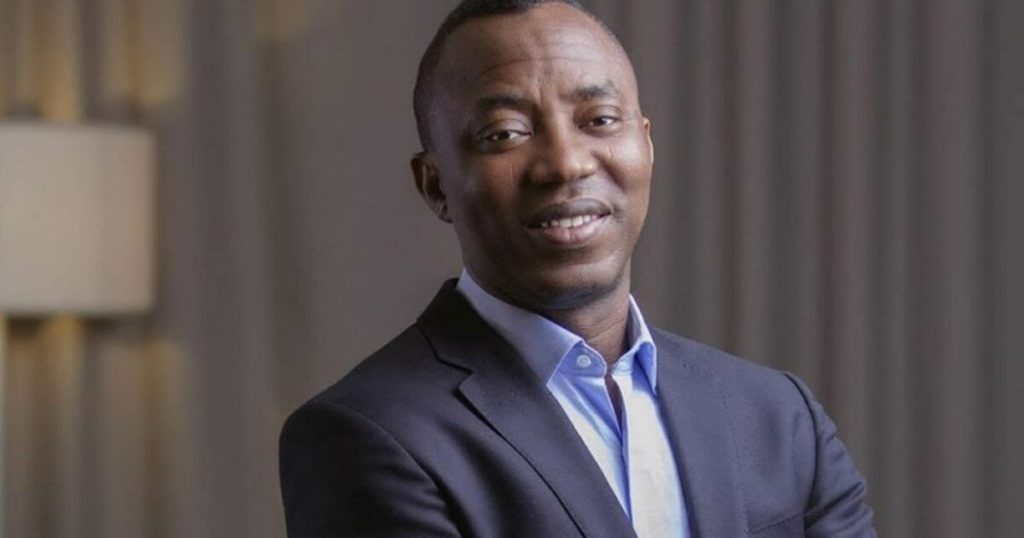The Unlawful Arrest of Omoyele Sowore: A Travesty of Justice and an Assault on Democracy
The recent arrest of Omoyele Sowore, a prominent pro-democracy activist and journalist, by the Nigeria Police Force has sparked widespread condemnation and calls for his immediate release. The Coalition of United Political Parties (CUPP) and the Arewa Youth Ambassadors, two influential groups, have vehemently denounced the arrest, characterizing it as a flagrant violation of Sowore’s constitutional rights and a blatant abuse of police authority. This act of suppression has ignited concerns about the shrinking democratic space in Nigeria and the increasing misuse of state power to silence dissent.
The CUPP, through its National Secretary, Peter Ameh, has articulated its strong disapproval of the arrest, emphasizing that it contravenes Section 39 of the Nigerian Constitution, which guarantees freedom of expression and opinion. Ameh argued that the police force, instead of safeguarding the rights of citizens, has become an instrument of oppression, used to stifle critical voices and suppress opposition. He demanded a transparent explanation from the police regarding the grounds for Sowore’s detention and insisted on his unconditional release. Furthermore, Ameh challenged the Inspector General of Police to charge Sowore to court without delay if there is credible evidence against him.
The Arewa Youth Ambassadors, a prominent youth organization in northern Nigeria, have also expressed their outrage over Sowore’s arrest and continued detention. In a strongly worded statement, the group issued a 72-hour ultimatum to the federal authorities, demanding Sowore’s release and threatening to stage nationwide protests across the 19 northern states and the Federal Capital Territory if their demand is not met. The Ambassadors view Sowore’s arrest as part of a broader pattern of harassment and intimidation aimed at silencing critics and suppressing dissent. They warned that such actions pose a grave threat to democratic values and civic freedoms.
Sowore’s arrest is not an isolated incident but rather the latest in a series of actions targeting activists, journalists, and critics of the government. This troubling trend raises serious concerns about the shrinking civic space in Nigeria and the increasing intolerance of dissent. The misuse of state institutions, particularly the police force, to suppress opposition and silence critical voices is a dangerous development that undermines the very foundations of democracy.
The continued detention of Sowore without clear charges is a blatant violation of his fundamental rights. Denying him access to bail further exacerbates the injustice and reinforces the perception that the police are acting on political orders rather than upholding the rule of law. The lack of transparency surrounding his arrest and the refusal to provide a justifiable reason for his detention only fuels speculation and reinforces suspicions of political persecution.
The calls for Sowore’s release are not merely about defending the rights of an individual but about safeguarding the fundamental principles of democracy and freedom of expression. Silencing critical voices and suppressing dissent is a slippery slope that can lead to authoritarianism and the erosion of democratic values. The Nigerian government must heed the calls from various quarters to release Sowore unconditionally and demonstrate its commitment to respecting the rights of all citizens. The international community should also closely monitor the situation and exert pressure on the Nigerian authorities to uphold the rule of law and protect fundamental freedoms.
The silence of the police on the reason for Sowore’s arrest further deepens the suspicion and distrust surrounding the case. The police have a responsibility to be transparent and accountable to the public. Their failure to provide a clear and justifiable reason for Sowore’s detention only strengthens the perception that the arrest is politically motivated. This lack of transparency undermines public trust in the police force and fuels concerns about the selective application of the law. It is imperative that the police provide a prompt and credible explanation for Sowore’s arrest and ensure that his rights are respected throughout the legal process. The future of democracy in Nigeria depends on the government’s willingness to uphold the rule of law and protect the fundamental rights of its citizens.


